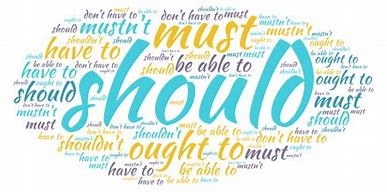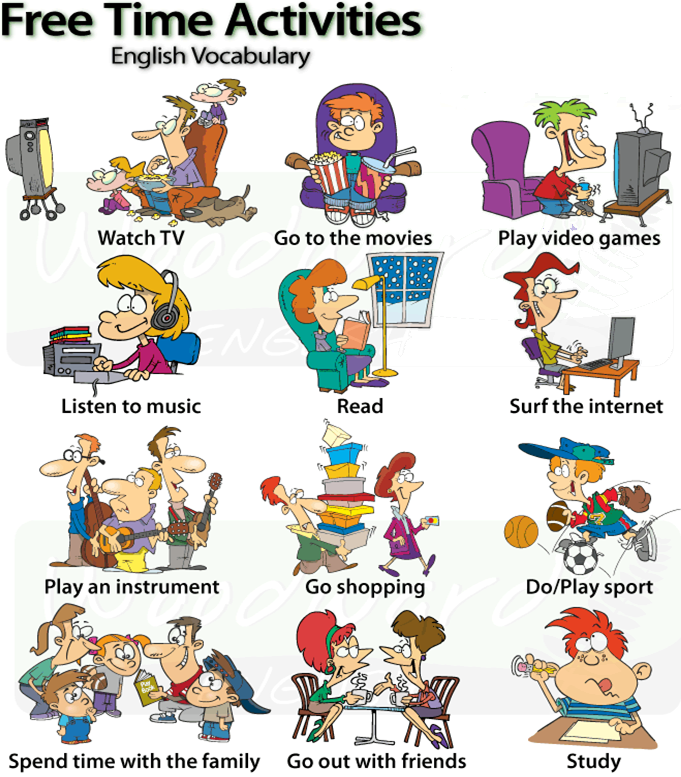MODAL AUXILIARIES
M.A. (modal auxiliaries) have grammatical functions and are used for forming tenses, questions, the passive, etc.
Modal AUXILIARIES are can, could, may, might, must, ought to, shall, should, will, would and need (need can also be a main verb).
AND YOU SHOULD KNOW THAT...
Modal verbs are a kind of auxiliary verb. They facilitate the main verb for suggesting
- potential,
- expectation,
- permission,
- ability,
- possibility, and
- obligation..

EXTRA MATERIAL
About the extra categories for modals...
It happens being quite impostant to recognize other uses for modal auxiliaries when speaking.
By clicking on the next images you will access to charts which contain different categories for modals.
- WATCH THE VIDEO AS MANY TIMES AS YOU NEED TO.
- COMPARE THE VISUAL AID TO THE WRITTEN AID IN THE PREVIOUS ARTICLE.
- TAKE NOTES
- TO PAUSE THE VIDEO , LOOK DOWN IN THE PROGRESSIVE BAR DURING THE VIDEO.
FREE TIME ACTIVITIES
What are the free time activities in English?
Free time is the leisure time that you don't need to work or do compulsory activities. People feel themselves relaxed and stress-free in their free time. If someone likes doing certain activities in their free time it is called "free time activities", "spare time activities", "hobbies" or "recreation activities". These activities are done for enjoyment and amusement.
- Free time activities are voluntary and done for pleasure.
- Hobbies are regular activities of someone which is done for pleasure.
- Holidays or vacations are certain periods of time spared for free time.
If you want to learn the names of free time activities in English, you will find the information in our blog page by clicking on the next link, https://sntsscbingles01.blogspot.com/p/unit-four.html explore them!!!



